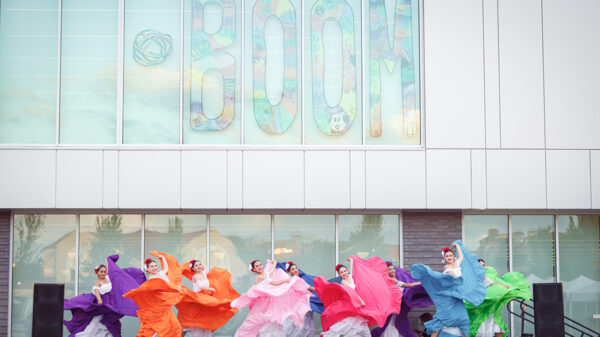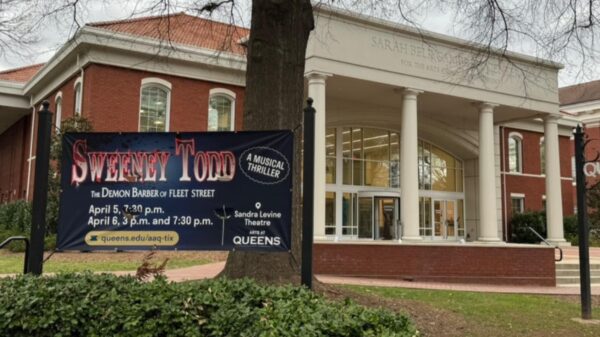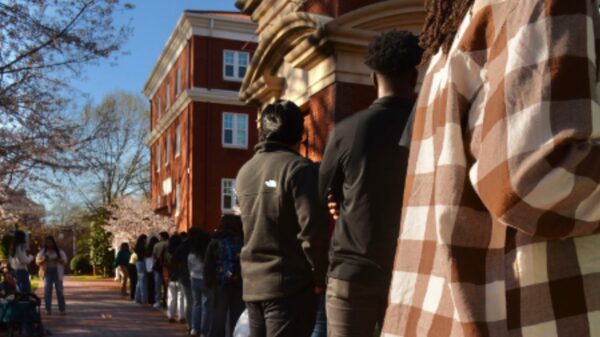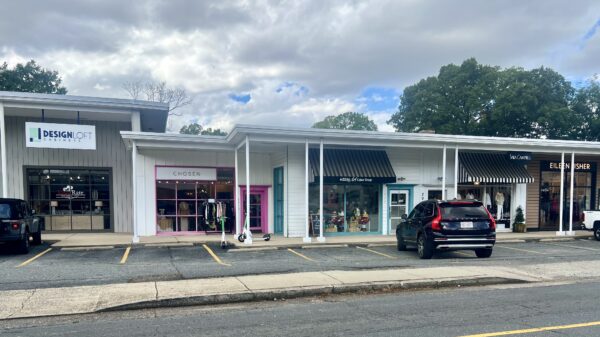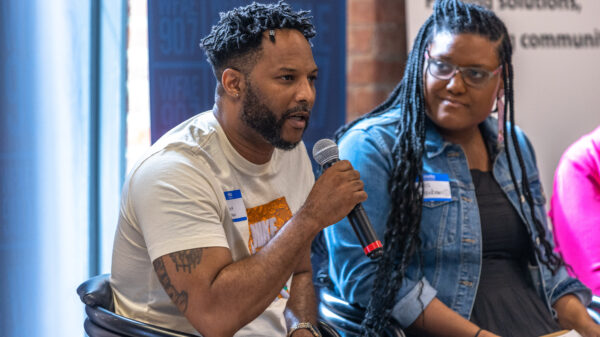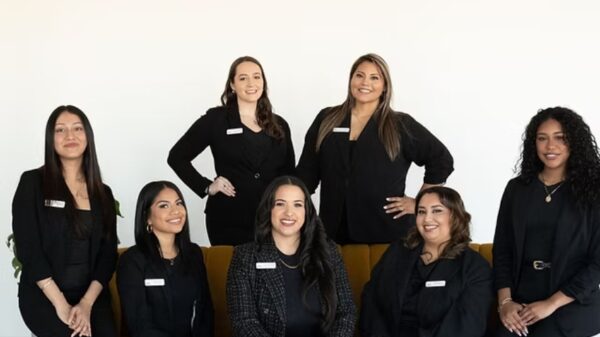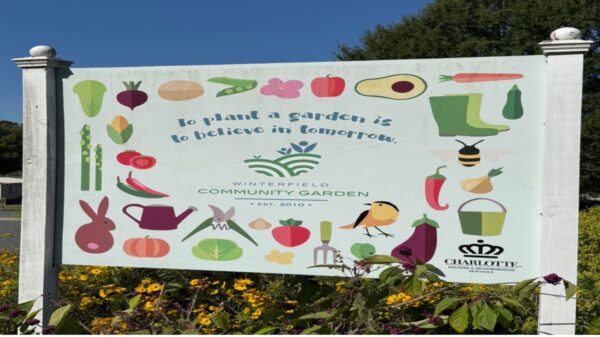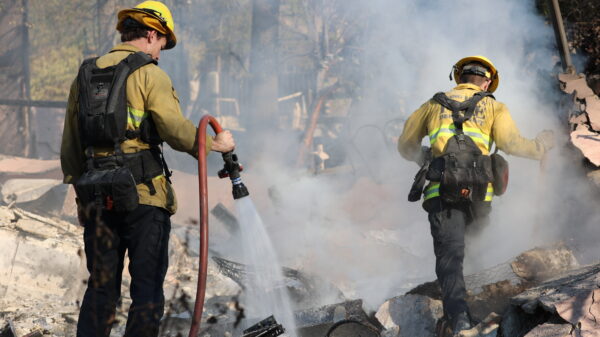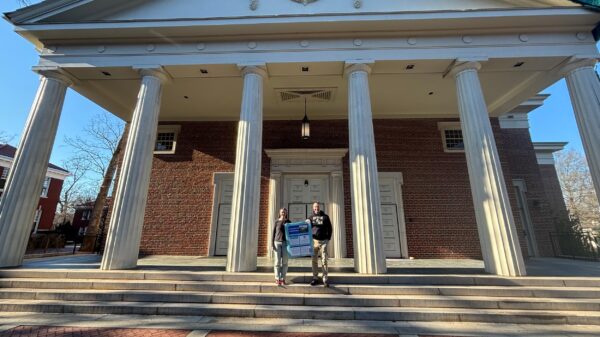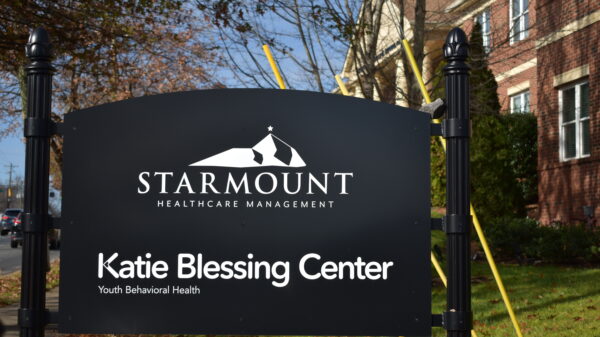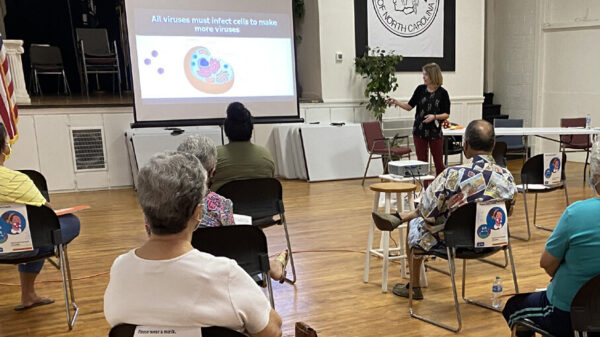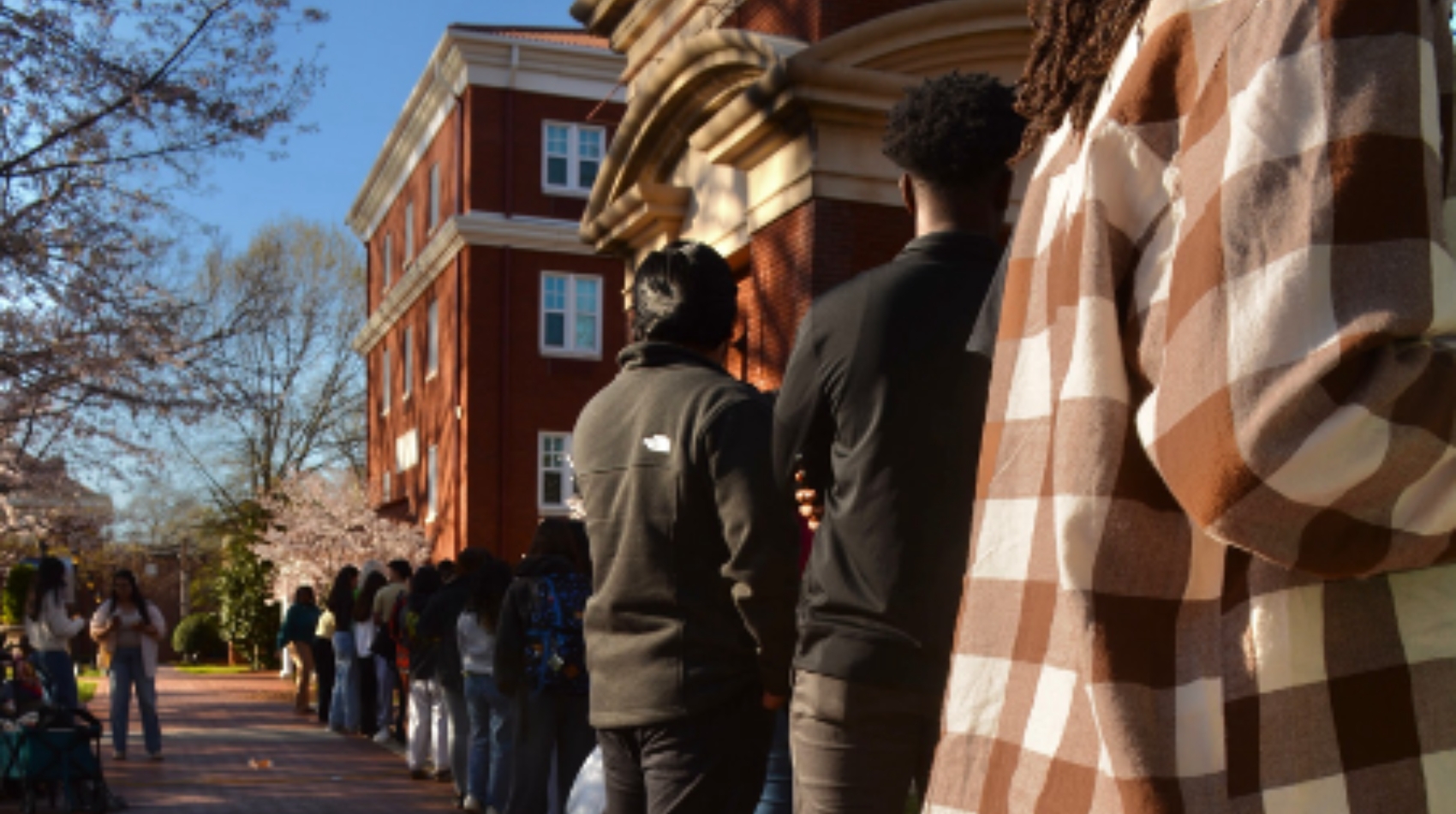College students have a lot to deal with – assignments, tests, grades, extracurricular activities and burgeoning friendships that will often last a lifetime. On top of this, some students now have an added fear lingering in the back of their minds every day, the possibility of an ICE raid on campus. For an undocumented college student, their life could change in an instant. Everything comforting and familiar, everything they’ve been working toward, their entire life, could be ripped away.
“It’s just this fear, right?,” says one student at Queens University of Charlotte, a member of the Latin American Student Organization (LASO). “You have school, you have everything going on, but then there’s this extra layer – ‘Okay, I have to keep safe … anything could happen that could drastically change the way we are.”
With shifting immigration policy impacting communities across Charlotte, especially Hispanic and Latino residents, many at-risk students are wondering, what now?
To protect the privacy and safety of undocumented students, we have decided to not publish the name of this student in our story.
What Charlotte Colleges and Universities Are Saying
As a city with an influx of higher education institutions, several of which are emerging Hispanic-Serving Institutions (HSIs), the immigration status of college students in Charlotte has become an extremely prevalent concern with recent changes in federal administration and national immigration policies.
According to the 2020 U.S. Census, Mecklenburg County estimated the Latino/Hispanic population to be approximately 169,922.
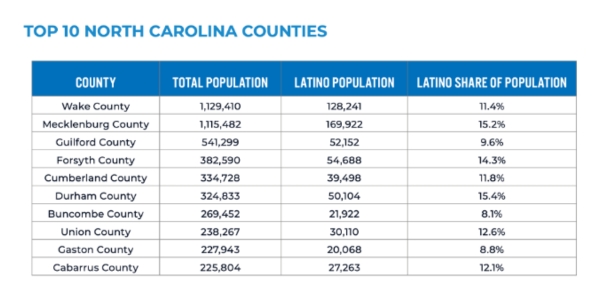
A closer look at public, private and community colleges in Charlotte reveals that the Hispanic/Latino student enrollment percentages are almost identical. For instance, according to U.S. News and World Report student population data, public University of North Carolina at Charlotte has a 15% Hispanic enrollment, while private institution Queens University of Charlotte is at 13%, and Central Piedmont Community College’s Hispanic enrollment is 14%.
Each have taken a different approach to the recent changes. While CPCC has released no official statements regarding the changing federal policy, when asked, vice president of communications, marketing, and public relations Catherine Butler stated:
“We take student safety seriously at Central Piedmont – and have a keen focus on keeping our students, faculty, staff and community members safe. As a community college, we aim to provide a safe learning environment for our community of more than 1.2 million residents across Mecklenburg County. As we prioritize the safety of our students, we must also comply with all local, state and federal laws. We continue to monitor this situation closely and share additional guidance as it may be available.”
UNC Charlotte has publicly stated that their campus authorities will comply with all ICE enforcement requirements.
“As a public university, UNC Charlotte will continue to comply with all applicable federal and state laws, including those that protect student privacy,” stated Chancellor Gaber in an email to students and faculty.
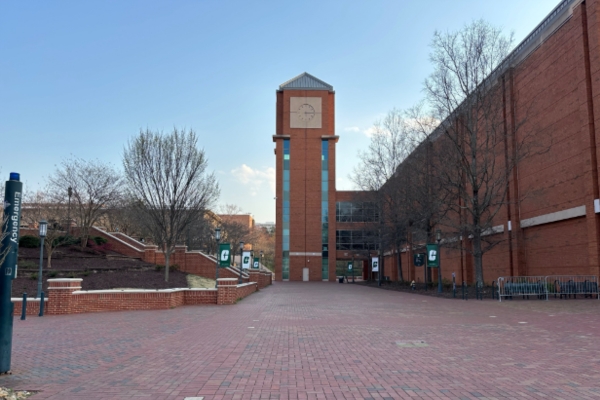
Queens University also released a statement earlier this year to students regarding ICE entering campus, instructing people to inform campus police officers in the event of a potential ICE encounter. Additionally, Queens’ LASO released an official statement on their Instagram page, affirming community allyship and confirming their support of both the Latino and wider student population.
Still, adds the Queens LASO student, “we have definitely approached it very cautiously.” Avoiding the topic, however, can be just as harmful leaving a lot of undocumented students in a vulnerable state. Ultimately, she says, “our goal has been to provide the safe space, and that’s something we’re still creating.”
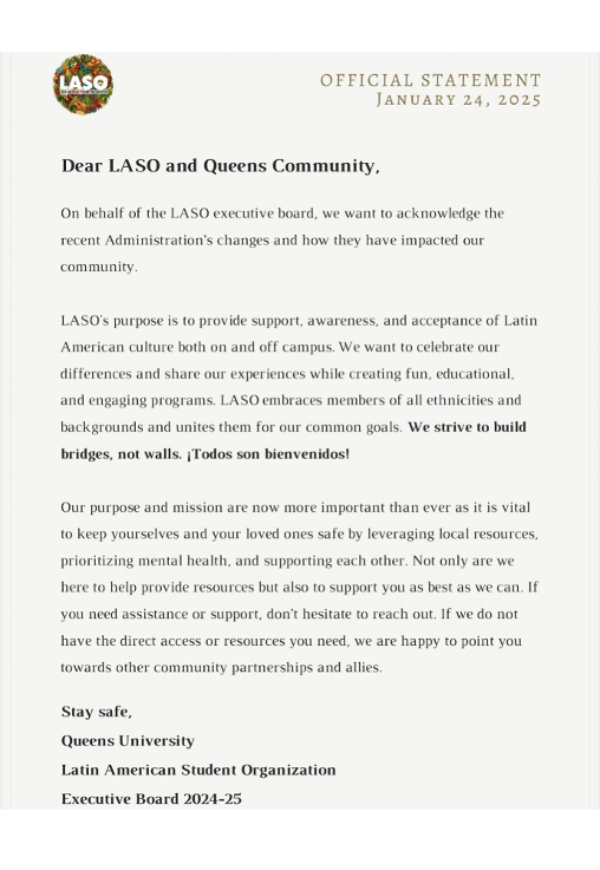
What Students Should Know
As immigration policies shift, it’s important for undocumented students to be prepared for federal immigration enforcement while on college campuses.
Immigration-related federal government enforcement agencies include the U.S. Immigration and Customs Enforcement (ICE) and U.S. Department of Homeland Security (DHS).
According to Cristiano Mendéz, an immigrant justice attorney at the Charlotte Center for Legal Advocacy, the best thing to do is to comply with any requests made of you and then argue your case in a legal setting. “Fight in the court, not in the street,” he says.
For instance, according to Mendéz, if a student is in their vehicle, it’s important to stay calm, provide a license, insurance and registration, and don’t leave.
ICE doesn’t need reasonable suspicion to stop you in your car.If you are stopped by an officer in public or in a vehicle, it is extremely crucial to ask, “Am I being detained?” This statement activates your Fifth Amendment rights, which state that individuals cannot be forced to provide evidence or testimony that could be used against them in a criminal case.
Students can always exercise their right to silence, by stating “I am exercising my right to remain silent.” While in a vehicle, you also have the right to deny search. If the student does not speak English or fluent English, they can also ask for an interpreter.
The Queens student says that forming community bonds is really important for undocumented students and that professors should know where safe spaces are located. “Even a simple, ‘you can feel safe in my office’ from professors can help create those safe community ties,” she says.
Although official emergency plans are still in the works and many universities have been notably silent, organizations like LASO are stepping up to support the immigrant student community.
Even a simple, “How are you feeling? How’s your family?” can go a long way, she adds.
Ultimately, it’s about changing the narrative around immigration and immigrant communities. “A big, important part of everything that’s going on is informing people,” says the LASO student.
“There’s a lot of successful immigrants, and they’re nothing like what, you know, you’re told in the news,” she says “We’re here because we want a better future.”
For more immigration resources, visit: www.justice.gov/eoir/self-help-materials.
-
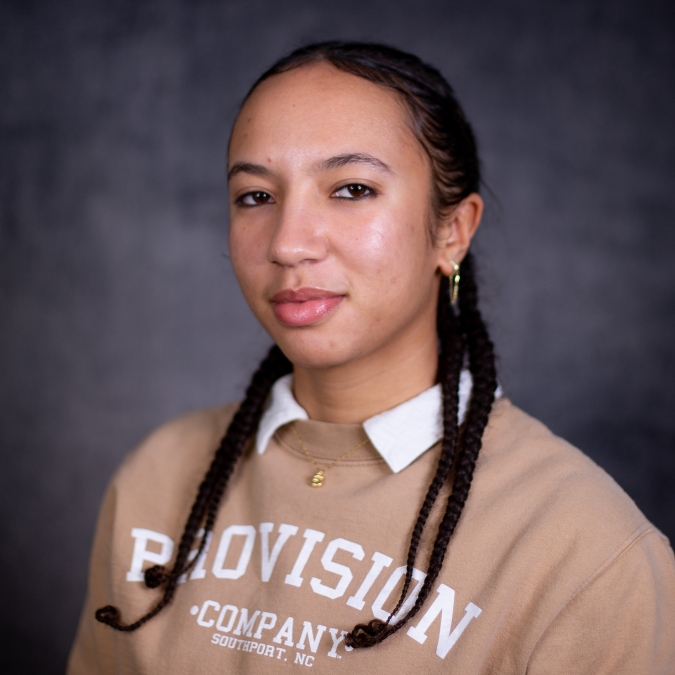
Sofia Bartholomew of Charlotte, North Carolina, is a conservation biology, creative writing, and history major in the College of Arts and Sciences at Queens University of Charlotte. Sofia is also a performance usher at Queens University’s Sarah Belk Gambrell Center for Arts and Civic Engagement. She was awarded a regional Gold Key and an Honorable Mention award for writing in the 2024 Scholastic Art and Writing Awards.
View all posts
-

Arianna Carletti Albano of New Rochelle, New York, is a Multimedia and Storytelling major in the James L. Knight School of Communication at Queens University of Charlotte. Arianna is also minoring in Journalism.
View all posts


